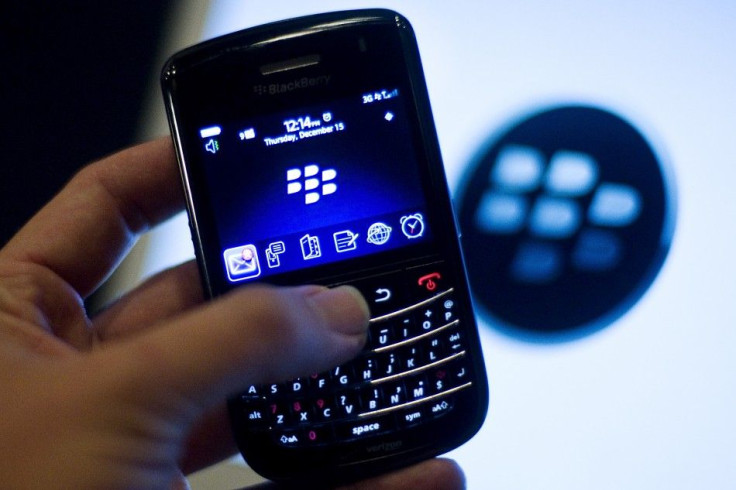BBM For IOS, Android Release Date Delayed Amid Rapid Decline In BlackBerry’s Worldwide Fortunes

BlackBerry Ltd. (NASDAQ:BBRY), which is increasingly being seen as a has-been in the world's smartphone market, announced Saturday that it has suspended the official roll-out of its BlackBerry Messenger, or BBM, for both iOS and Android platforms for an unspecified period of time, citing technical issues with the application.
The troubled Canadian smartphone maker had announced last week that it would release its popular instant-messaging application for Android smartphones running Ice Cream Sandwich and Jelly Bean (Android 4.0 and later version) beginning at 7 a.m. EDT on Sept. 21, while iPhone users would be able to download the app beginning at 12:01 a.m. EDT on Sept. 22.
However, according to the company, before it could launch BBM for Android an unreleased version of the app was leaked online that eventually created some technical problems, forcing the company to disable the Android version and delay the official release of both versions.
“The interest and enthusiasm we have seen already – more than 1.1 million active users in the first 8 hours without even launching the official Android app – is incredible. Consequently, this unreleased version caused issues, which we have attempted to address throughout the day,” a blog post on BlackBerry’s website said.
The company added that users who had already downloaded the official version of the BBM for iPhone would be able to continue using the app because only the Android version has been disabled. However, iPhone users that had not downloaded BBM before it was pulled will have to wait for the company to re-release the application to download it onto their phones.
“Our teams continue to work around the clock to bring BBM to Android and iPhone… We are pausing the global roll-out of BBM for Android and iPhone,” the post said.
The company indicated that it would launch both the iOS and Android versions of the BBM app via a staggered, worldwide rollout. However, it did not provide any timeline for the rollout.
The latest hiccups with the BBM app is a further blow to BlackBerry’s fortunes following its announcement last week that it would cut approximately 4,500 jobs, or about 40 percent of the company’s global workforce as part of a plan to reduce operating expenditures by 50 percent by the end of the first quarter of 2015. BlackBerry said also that it expected an operating loss of approximately $950 million to $995 million when it reports second-quarter earnings this week.
A recent report by the International Data Corporation, or IDC, noted that while the worldwide mobile phone market is forecast to grow in 2013, driven by 1 billion smartphone shipments, BlackBerry OS is expected to account for a market share of 2.7 percent by the end of 2013, and this is projected to decline to 1.7 percent in 2017.
In India, BlackBerry’s sales have declined more than 50 percent so far this year mainly due to sluggish sales of the company’s handsets such as the Z10, Q10 and Q5, which run on the BlackBerry 10 operating system.
“The BB10 devices have not gained traction the way BlackBerry had anticipated they would in India,” Himanshu Chakrawarti, chief executive of The Mobile Store, a smartphone retailer in India, told The Economic Times, an Indian business daily. “BlackBerry sales are losing ground rapidly to Android devices from Samsung and Sony, and Apple's iPhone.”
While overall smartphone sales in India are posting an annual growth of more than 50 percent, BlackBerry’s market share in the Indian smartphone market dropped to 2 percent in the April-June quarter from 7 percent a year earlier, according to IDC.
“It's not surprising in the sense that we haven't seen any traction with their devices, and it's obviously exacerbated by the fact that you've got Apple out with a new product, you've got several new Android products, and Blackberry continues not to get traction,” Brian Modoff, an analyst at Deutsche Bank Research, told Reuters.
© Copyright IBTimes 2024. All rights reserved.





















